“All of my writings address human desires and aspirations with a reverence for facts and principles.”
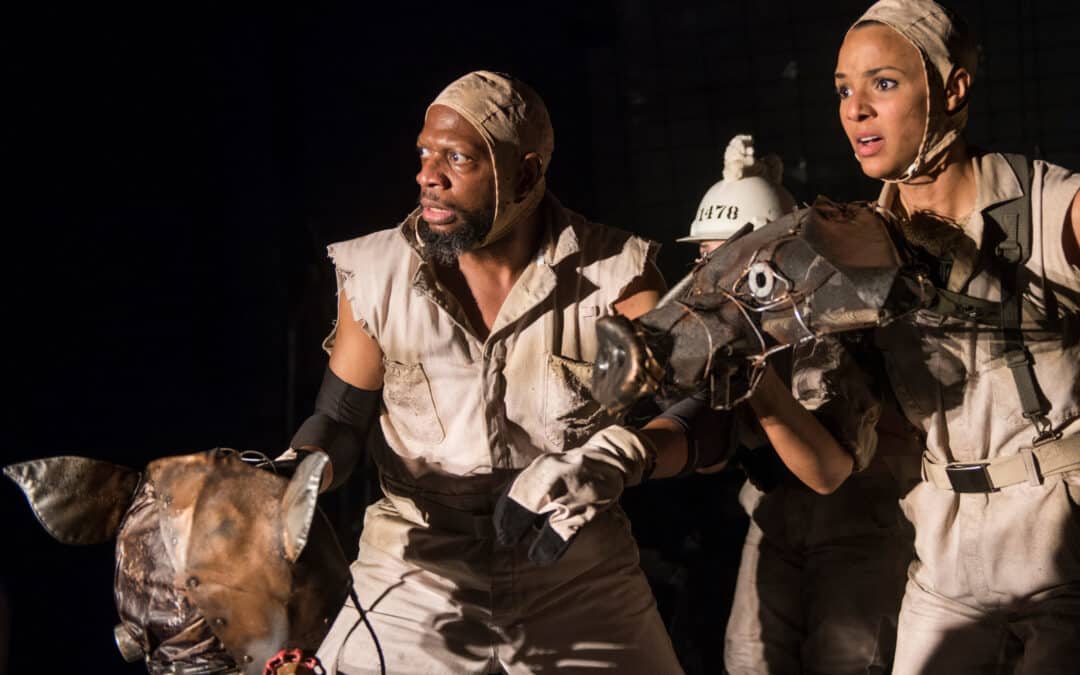
Same As The Old Boss: Center Stage’s Grim, Industrial ANIMAL FARM
The true selling point of this production is not so much a reimmersion in Orwell’s masterpiece as a reminder, if we needed reminding, of the collective nausea that overtakes us in one of those periodic moments when totalitarian assaults on truth, justice and human dignity are winning.
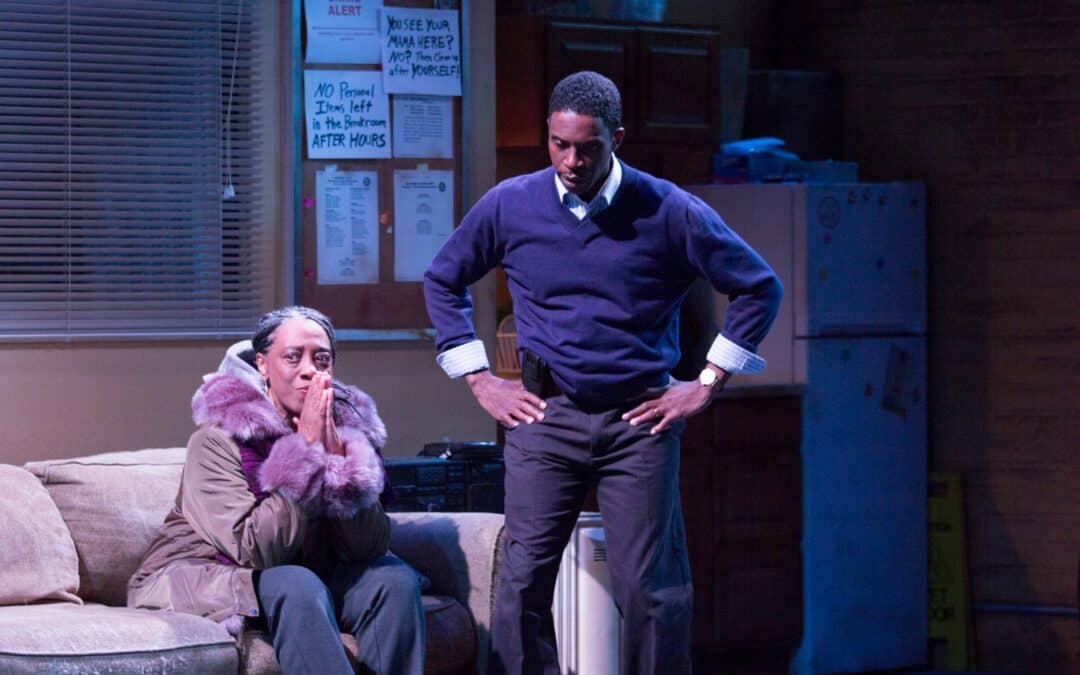
When Everything Falls Apart: SKELETON CREW at Center Stage
As Dominique Morisseau’s Skeleton Crew beautifully demonstrates, a factory means so much more than just what rolls off the assembly line. It is a roof over its workers’ heads, a community, a source of mortgage payments for one’s home and tuitions for one’s children, of health care and financial security in one’s old age. And when it is threatened, all of these things are threatened too.
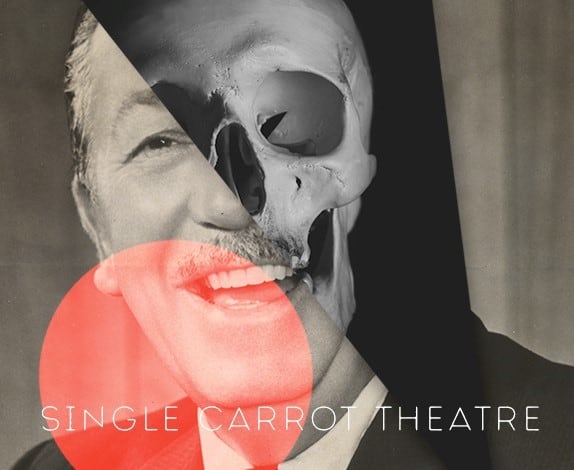
No Escape from the Hall of Mirrors in THE DEATH OF WALT DISNEY at Single Carrot Theatre
It becomes apparent that Walt’s effort to write about his demise, to force it into the role of conversational subject rather than himself becoming that death’s object and thereby losing the ability to write about it, is part of his struggle, and part of the reason he keeps reaching for the clicker with all those “cuts tos” in a futile effort to rejigger things in a way that will avert the conclusion. His motto is “Unless you’re one of the most important people who ever lived, what’s the point?” But there remains no point if you have no consciousness left to enjoy your importance. Hence the sight near the end of doomed Walt struggling to slow down and stretch out indefinitely the experience of his own final moments.
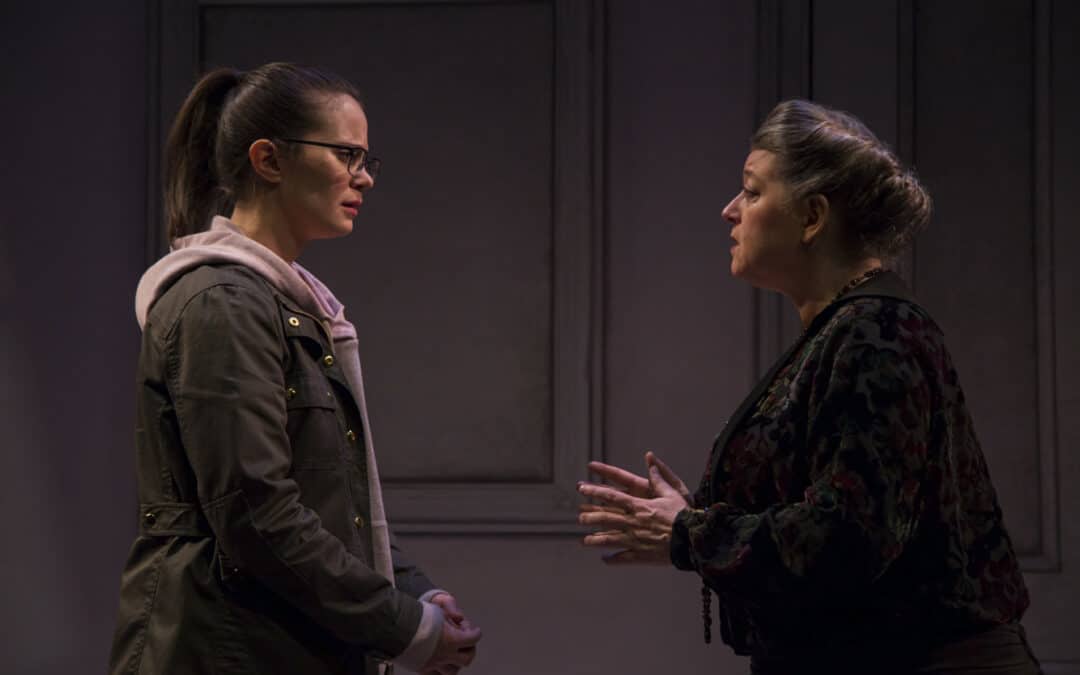
A Community’s Accomplishment and the Homosexual Gaze: ALL SHE MUST POSSESS at REP Stage
All She Must Possess does not suggest that the Cone Collection was Etta’s work alone, but rather depicts it as the emanation of the entire community, including not only Etta Cone, but her sister Claribel, Gertrude Stein, Gertrude’s brother Leo, Alice Toklas, and the artists, for whom Matisse stands in as representative. It was out of that community’s joy in creation and discussions of it (Expressionism vs. Cubism, for instance) that the collection, a thing of transcendent value, is shown as having emerged, with Etta’s role as being the primary shaper of the final product. But the play is generous in giving all of these participants in the joint creation some “screen time” in which to demonstrate their contributions to the enterprise, whether it be Leo’s joie-de-vivre, Matisse’s artistic exuberance, Gertrude’s self-assuredness in exploring the limits of what speech can do, or even Alice’s bitchy possessiveness as Gertrude’s helpmeet.
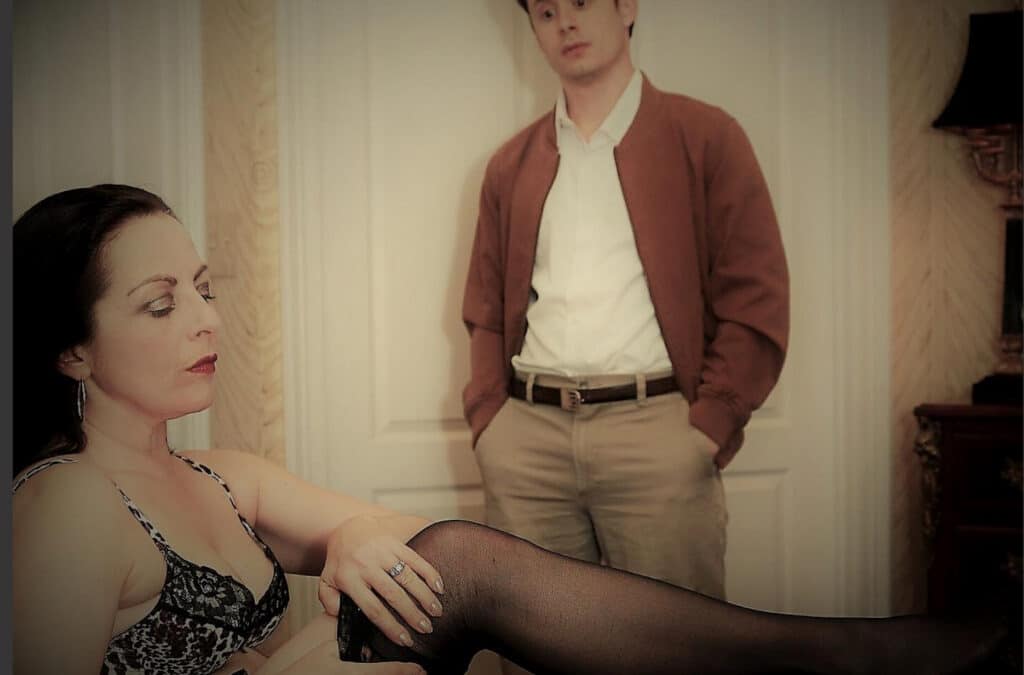
A Lackluster Script Spoils THE GRADUATE at Dundalk Community Theatre
Ben’s character may be a phony pastiche, and Elaine’s a confusing cypher, but in Elaine’s mother Mrs. Robinson, novelist Charles Webb struck gold. Bored, lecherous, alcoholic, deeply dishonest, vengeful, and possessed of a twisted motherly loyalty, she is real and vital and scary as hell. Dyana Neal’s Mrs. Robinson is pretty much perfect. She has the intimidating stare, the commanding manner, the resolute lack of curiosity about any aspect of the world aside from sex, tobacco, and alcohol, the maternal protectiveness, all down pat. If Anne Bancroft is looking down from heaven, she probably approves.
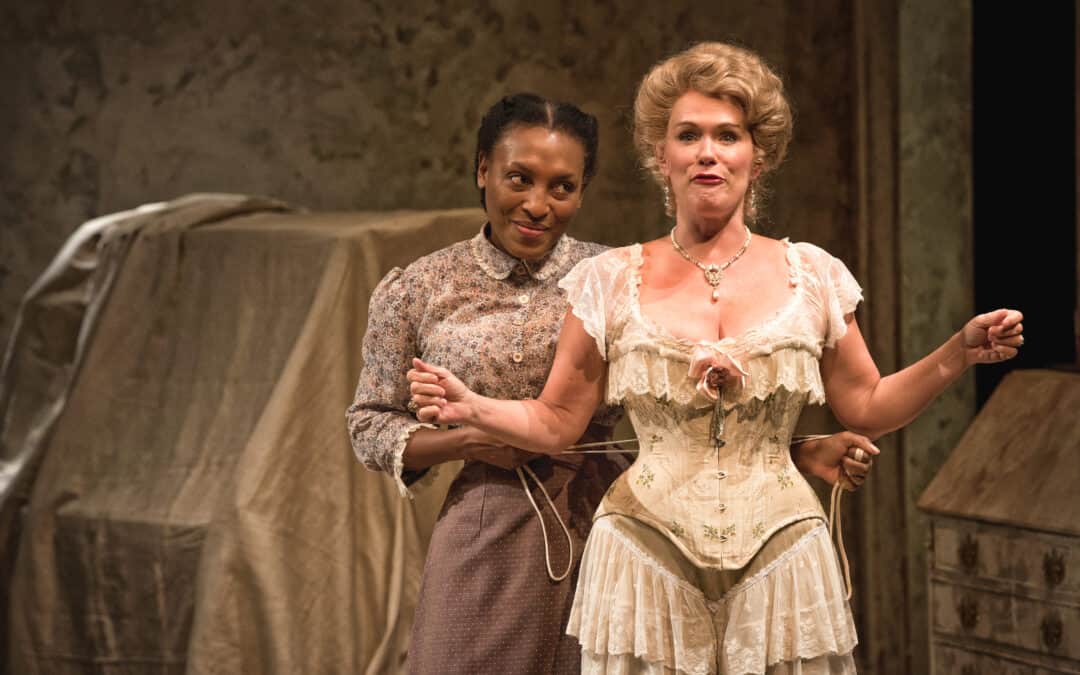
Everyman Hosts INTIMATE APPAREL’s Triumphant Return to Baltimore
There seems to be a constant in Lynn Nottage’s plays: the reality that people of color and women do not get many breaks or many chances for happiness or fulfillment. Whatever they do achieve along these lines is both hard-won and partial. In fact, that constant reality of limits on the available economic opportunity and on the available happiness is precisely the theme of Intimate Apparel. Heroine Esther (Dawn Ursula), being both black and female, looks for fulfillment in love, in friendship, and in work (as a seamstress and lingerie maker), and it seems at the end that she has obtained about all of any of these that is on offer.

Helter-Skelter, Seat-of-the-Pants Hilarity: SHAKESPEARE IN LOVE at Center Stage
Most of all, perhaps, is the sense of the theater as a helter-skelter, seat-of-the-pants, totally precarious enterprise, in which people start out to cast or produce a show with no idea how it’s going to be completed, without necessarily even a script, and in which the way to make the final product viable, let alone successful, is, as the script keeps saying, a mystery.
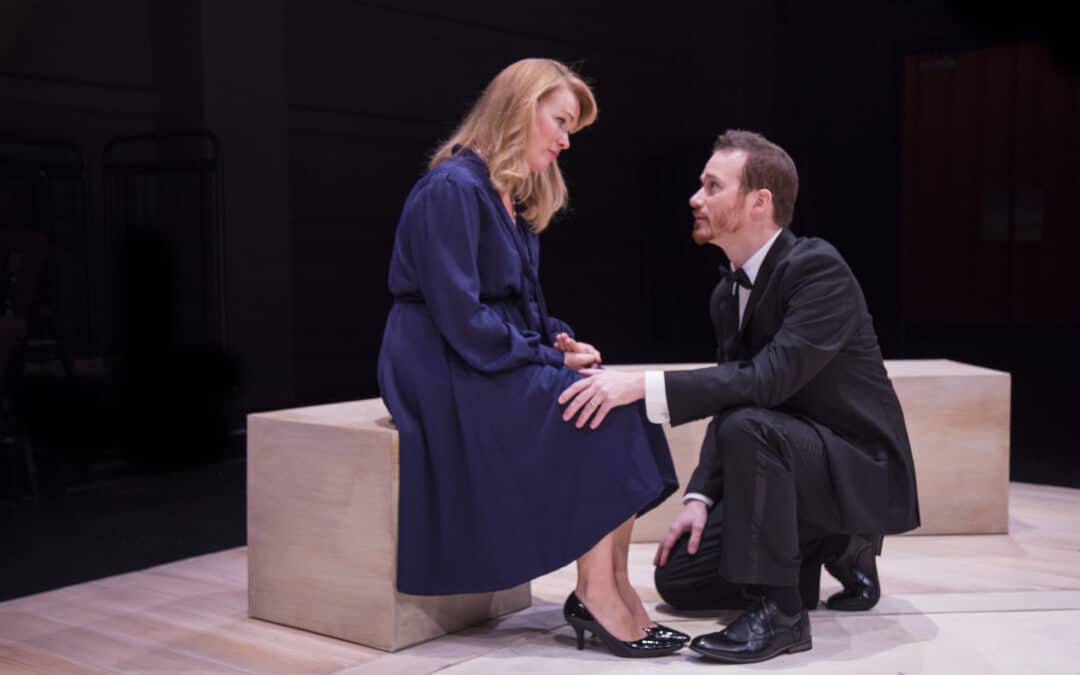
A Generation and a Movement Considered in THE HEIDI CHRONICLES at The REP
The play has aged well. Women are, of course, still grappling with some of the issues that Heidi confronts. But it is not the specific issues that make the play last and lead me to predict that there will be revivals a century hence. One thing is for sure: the pop culture time-stamps like specific songs redolent of particular years will surely almost certainly elude our grandchildren. But the interplay between bright, somewhat idealistic people and their times is bound to continue, and stories about that interplay are bound to go on holding the attention.

An Embrace of Dangerous Illusions, Stunningly Portrayed: M. BUTTERFLY at Everyman
Bruce Randolph Nelson’s portrayal of Monsieur Gallimard is authoritative: all the glibness of a would-be mandarin who cannot quite pull it off, a lyrical self-awareness that does not quite go far enough, and a touch of madness. Every line rang true.
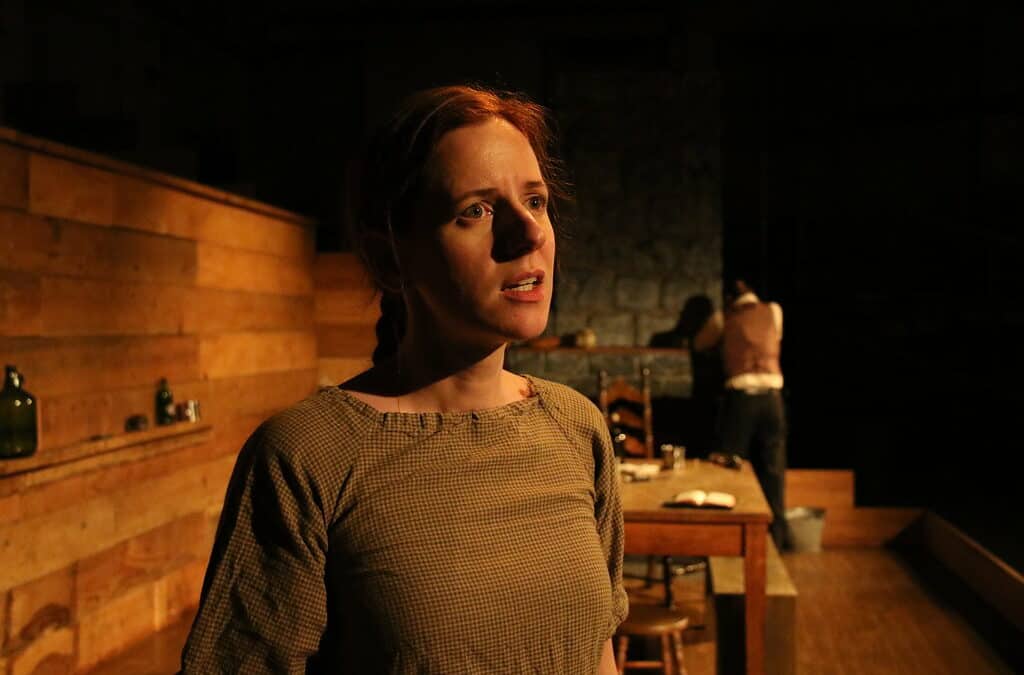
A Beautifully-Acted Tragedy Of Ideas: SALLY McCOY at Cohesion Theatre
Sally, as realized by Katherine Vary, is amazing to watch, as she constantly calculates what tactic, rhetorical, pugilistic, or personal, to employ next. When her bag of tricks appears empty to us, and apparently empty to her for a moment, she keeps coming up with one more and you can see her own delight and relief at her creativity as she yet again digs up something else.

 I lived in London and Vienna before coming to the United States, and grew up mainly in Ann Arbor. I was writing plays and stories as early as grade school. My undergraduate years at the University of Pennsylvania, where I first reviewed theater, for the college paper, were succeeded by graduate study at the Johns Hopkins University, where I earned a doctorate in English Literature.
I lived in London and Vienna before coming to the United States, and grew up mainly in Ann Arbor. I was writing plays and stories as early as grade school. My undergraduate years at the University of Pennsylvania, where I first reviewed theater, for the college paper, were succeeded by graduate study at the Johns Hopkins University, where I earned a doctorate in English Literature.